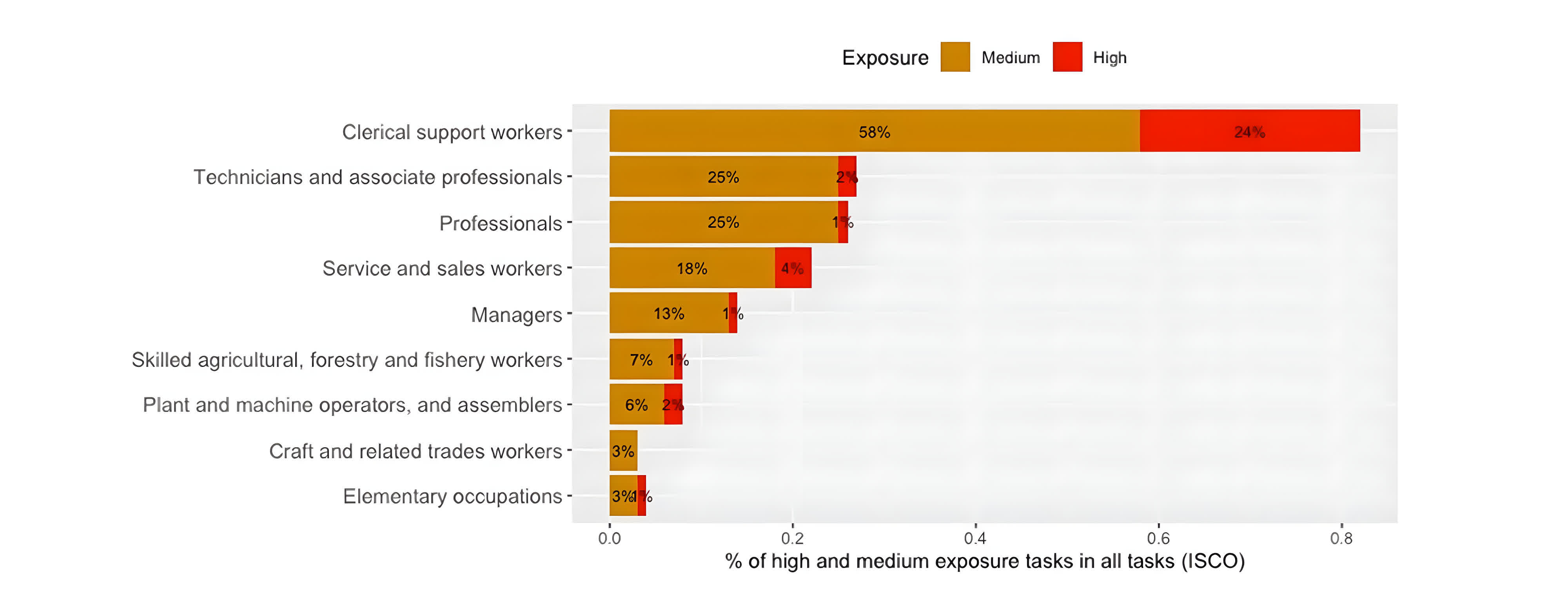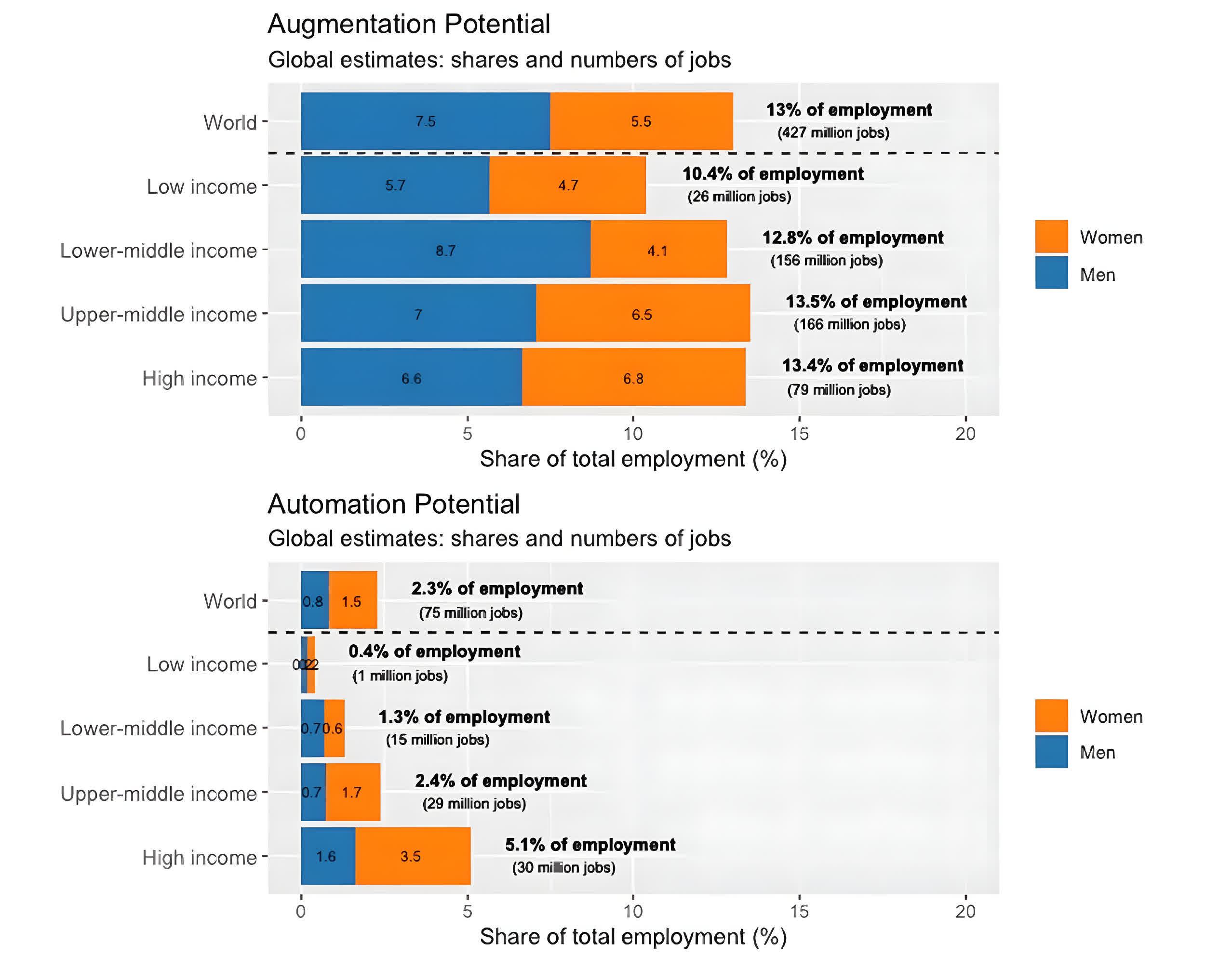In brief: Another study on the impact that generative AI will have on jobs has been published. Mirroring the results of a similar recent report, it concluded that most people will see their positions augmented by the technology as opposed to them becoming automated. However, women and admin workers face the greatest risk of seeing their jobs replaced.
A new study from the International Labour Organization (ILO) looked at the potential effects generative AI will have on job quantity and quality. The bottom line is that most jobs and industries are only partially exposed to automation and are more likely to be complemented by AI.
Clerical workers were found to be the category with the greatest amount of technical exposure to generative AI. About a quarter of clerical tasks were considered highly exposed, while more than half (58%) had medium-level exposure. The study names typists/word processing operators, travel consultants, scribes, inquiry clerks, contact center information clerks, bank tellers, data entry clerks, and survey and market research interviewers as those whose jobs are most at risk of becoming fully automated.
The risk to clerical workers is a stark contrast to other occupational groups such as professionals, managers, and technicians, who only had a small share of tasks that are greatly exposed, while a quarter of tasks had medium-level exposure.
The study also found that generative AI is likely to impact more women than men. It noted that more than twice the share of female employment is potentially affected by automation, partly due to the higher number of women in clerical work.
ILO estimated that in high-income countries, 7.8% of female jobs (around 21 million) are potentially automatable, while the figure is just 2.9%, or 9 million, for men. Overall, 5.5% of total employment in high-income countries is potentially exposed to automation, whereas in low-income countries, the risk only applies to 0.4% of all employment.
The study, which used the latest GPT-4 large language model that powers ChatGPT, notes that the socioeconomic impacts of generative AI will largely depend on how its diffusion is managed. It also warns that the costs to affected workers could be "brutal."
ILO's finding mirror a similar report from IBM this week that also predicted generative AI will augment rather than replace jobs. However, the study added that 40% of the global workforce will have to learn new skills over the next three years due to AI implementation, and warned that while AI won't replace people, people who use AI will replace people who don't.


